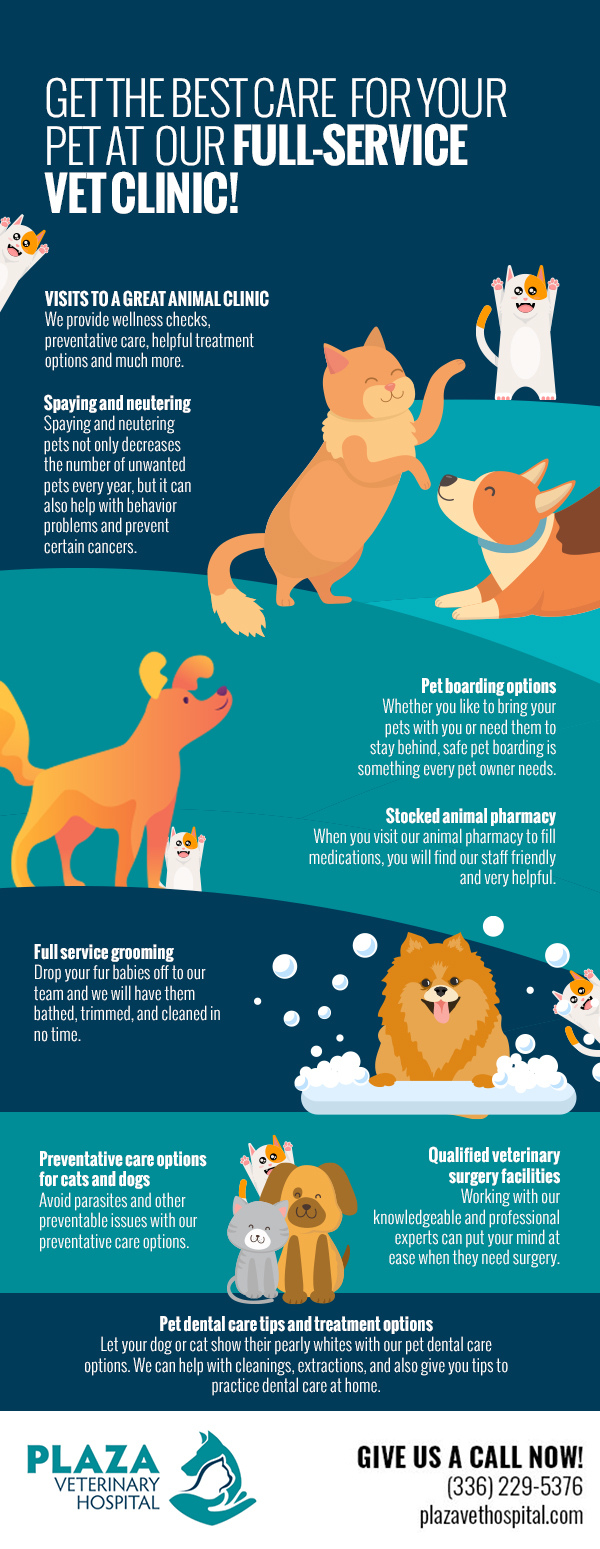Seek help from a professional or vet immediately if your pet shows concerning symptoms or behaviors. Early intervention can prevent serious health issues and provide necessary care for your beloved companion.
As a responsible pet owner, it’s crucial to be attentive to changes in your pet’s well-being and seek expert advice promptly when needed. Professional assistance ensures accurate diagnosis, appropriate treatment, and overall well-being for your furry friend. Whether it’s a sudden change in behavior, unexplained symptoms, or routine health concerns, consulting a vet can offer peace of mind and the best care for your pet’s health.
Trusting the expertise of a professional can make a significant difference in your pet’s quality of life.

Credit: plazavethospital.com
Contents
- Recognizing Pet Health Red Flags
- Emergencies That Demand Immediate Attention
- Routine Check-ups And Preventative Care
- Behavioral Issues And Professional Guidance
- Nutritional Advice For Optimal Health
- Chronic Conditions And Ongoing Treatments
- Alternative Therapies And Holistic Approaches
- End-of-life Care And Making Tough Decisions
- Frequently Asked Questions
- Conclusion
Recognizing Pet Health Red Flags
Identifying pet health red flags is crucial. If you notice any unusual behavior or symptoms, seeking help from a professional or vet promptly is essential for your pet’s well-being. Trust your instincts and don’t hesitate to seek expert advice.
Pets are like family members, and their health is equally important. As a pet owner, it’s crucial to know when your pet needs professional help. Recognizing pet health red flags can help you identify when it’s time to seek help from a professional or a vet. Some pet health red flags that you should watch out for are changes in behavior and abnormal eating habits.Changes In Behavior
Pets communicate through their behavior, and any unusual behavior can indicate an underlying health issue. Watch out for changes in your pet’s behavior, such as lethargy, aggression, anxiety, or excessive vocalization. These changes may indicate pain, stress, or discomfort. If you notice any such behavior changes in your pet, it’s essential to take them to a vet for a checkup.Abnormal Eating Habits
Your pet’s eating habits can also indicate their health status. A change in appetite, excessive thirst, or sudden weight loss can be signs of underlying health issues. If you notice your pet is not eating or drinking as usual, it’s essential to monitor their behavior closely. If the abnormal eating habits persist for more than a day, consult a vet.In conclusion, recognizing pet health red flags is essential for pet owners. Changes in behavior and abnormal eating habits are two of the most significant indicators of a pet’s health status. If you notice any unusual behavior or eating habits in your pet, it’s essential to consult a vet as soon as possible.Emergencies That Demand Immediate Attention
In case of emergencies with your pet, it’s crucial to seek immediate help from a professional or a vet. Signs such as difficulty breathing, sudden collapse, or severe bleeding require urgent attention. Don’t hesitate to contact a professional when your pet’s health is at risk.
Accidents And Injuries
Accidents and injuries can occur at any time, putting your pet’s health and well-being at risk. When faced with a situation where your pet has experienced a severe accident or injury, it is crucial to seek immediate help from a professional or veterinarian. Some common accidents and injuries that demand immediate attention include:
- Broken bones
- Deep cuts or wounds
- Severe bleeding
- Difficulty breathing
- Unconsciousness
- Seizures
In such situations, it is essential to act swiftly to prevent further harm or complications. By seeking professional help, you can ensure that your pet receives the necessary medical attention and appropriate treatment to aid in their recovery.
Sudden Illness Symptoms
Recognizing sudden illness symptoms in your pet is crucial for prompt intervention and appropriate care. Some signs that indicate your pet may be experiencing a sudden illness include:
- Lethargy or weakness
- Loss of appetite
- Vomiting or diarrhea
- Excessive drooling
- Abnormal behavior or confusion
- Difficulty urinating or defecating
- Severe pain or discomfort
If you notice any of these symptoms, it is important to consult a professional or veterinarian as soon as possible. They can assess your pet’s condition, conduct necessary tests, and recommend the appropriate course of treatment. Timely intervention is vital in managing sudden illnesses and increasing the chances of a successful recovery for your beloved pet.
Routine Check-ups And Preventative Care
Regular check-ups and preventative care are essential for your pet’s well-being. If you notice any concerning symptoms or changes in behavior, it’s important to seek help from a professional or a vet to ensure early intervention and optimal health for your furry friend.
Don’t hesitate to reach out for expert guidance and support.
Routine Check-ups and Preventative CareRegular check-ups and preventative care are essential for maintaining your pet’s health and well-being. Proactive healthcare can help identify potential issues before they become serious problems, ensuring your pet leads a long and healthy life.Vaccinations And Parasite Control
Vaccinations and parasite control are crucial aspects of preventative care for your pet. Vaccines protect against common diseases, and regular deworming and flea/tick prevention help keep parasites at bay.Dental Health And Spaying/neutering
Maintaining good dental health is vital for your pet’s overall well-being. Regular dental check-ups and cleanings can prevent dental disease and other related health issues. Additionally, spaying and neutering not only prevent unwanted litters but also offer several health benefits for your pet.Seeking professional help for routine check-ups and preventative care is essential for keeping your pet healthy and happy. Regular visits to the vet can help catch potential health issues early and ensure your pet receives the necessary care to thrive.
Credit: www.amazon.com
Behavioral Issues And Professional Guidance
If your pet is displaying concerning behavioral issues such as aggression, fearfulness, or excessive barking, it may be time to seek professional guidance from a certified animal behaviorist or a veterinarian. These experts can provide valuable insights and tailored solutions to address your pet’s specific needs.
Aggression And Anxiety
Dealing with aggression or anxiety in your pet can be challenging and overwhelming. If your furry friend displays aggressive behavior, such as growling, biting, or excessive barking, seeking professional guidance is crucial. An experienced animal behaviorist or veterinarian can assess the underlying causes of aggression and provide appropriate training techniques to address the issue.
Similarly, if your pet exhibits signs of anxiety, such as excessive whining, trembling, or destructive behavior, seeking professional help is essential. A qualified professional can help identify the triggers of anxiety and develop a tailored plan to alleviate your pet’s distress. They may suggest behavioral modifications, environmental changes, or even prescribe medication if necessary.
Training Challenges
Training your pet can be a rewarding experience, but it can also come with its fair share of challenges. If you find yourself struggling with training methods, seeking guidance from a professional trainer or behaviorist is highly recommended. They can assess your pet’s individual needs and provide effective training techniques tailored to their personality and learning style.
A professional can help you address specific training challenges, such as leash pulling, housebreaking difficulties, or disobedience. They can also guide you on how to reinforce positive behaviors and discourage negative ones. With their expertise, you’ll gain the knowledge and skills necessary to train your pet effectively and create a harmonious bond.
Nutritional Advice For Optimal Health
When it comes to the health and well-being of your furry friend, proper nutrition plays a crucial role. Providing your pet with the right balance of nutrients is essential for their overall health, energy levels, and longevity. However, navigating the world of pet nutrition can be overwhelming, and knowing when to seek professional advice is key to ensuring your pet receives the best possible care.
Special Diets And Supplements
Special diets and supplements can be beneficial for pets with specific health conditions or dietary requirements. Whether your pet requires a prescription diet to manage a medical condition or could benefit from supplements such as omega-3 fatty acids for skin and coat health, consulting with a veterinarian is essential. A professional can provide tailored recommendations to address your pet’s individual needs.
Weight Management
Weight management is a critical aspect of pet health. Just like humans, pets can suffer from obesity, which can lead to a myriad of health issues. A veterinarian can offer guidance on appropriate portion sizes, calorie intake, and suitable exercise routines to help your pet achieve and maintain a healthy weight. Seeking professional advice is crucial for pets struggling with weight-related issues.

Credit: m.facebook.com
Chronic Conditions And Ongoing Treatments
Chronic conditions in pets often require ongoing treatments to manage effectively. Seeking help from a professional or a vet is crucial for addressing issues like arthritis and mobility problems, as well as for ensuring proper long-term medication management.
Arthritis And Mobility Issues
Arthritis can severely impact a pet’s quality of life. Professional intervention is necessary to alleviate pain and improve mobility.
Long-term Medication Management
Effective long-term medication management requires expertise from a vet to ensure the right dosage and monitoring of side effects.
Alternative Therapies And Holistic Approaches
When your pet requires care beyond conventional treatments, you may consider alternative therapies and holistic approaches.
Acupuncture And Chiropractic Care
Acupuncture and chiropractic care can help address pain and mobility issues in pets.
Herbal Remedies
Herbal remedies offer natural solutions for various health conditions in animals.
End-of-life Care And Making Tough Decisions
When your pet is nearing the end of their life, it can be incredibly challenging to know when to seek help from a professional or a vet. During this emotional time, it’s important to consider End-of-Life Care and Making Tough Decisions.
Quality Of Life Assessments
- Regularly assess your pet’s quality of life.
- Look for signs of pain or discomfort.
- Consult with your vet for guidance.
- Consider factors like mobility and appetite.
Euthanasia Considerations
- Discuss euthanasia with your vet openly.
- Consider your pet’s pain and suffering.
- Think about their overall quality of life.
- Make the decision based on their well-being.
Frequently Asked Questions
Q: When Should I Seek Help From A Professional Or A Vet For My Pet’s Health Issues?
A: You should seek help from a professional or a vet if your pet is showing signs of illness such as loss of appetite, lethargy, vomiting, diarrhea, or any other unusual behavior. It is better to seek help earlier rather than later, as early detection and treatment can save your pet’s life.
Q: How Can I Determine If My Pet’s Condition Requires A Visit To A Vet?
A: If your pet is experiencing any symptoms such as fever, coughing, sneezing, diarrhea, or vomiting, then it is recommended to take them to a vet. Additionally, if your pet has been injured or has ingested something toxic, it is also necessary to seek veterinary care immediately.
Q: What Can I Expect During A Visit To A Veterinarian?
A: During your visit, a veterinarian will perform a thorough physical examination of your pet, including checking their vital signs and looking for any signs of illness or injury. They may also recommend diagnostic tests such as blood work, X-rays, or ultrasounds to further evaluate your pet’s condition.
Q: Can I Treat My Pet’s Health Issues At Home?
A: While some minor health issues such as small cuts or scrapes can be treated at home, it is always best to consult with a veterinarian before attempting to treat your pet’s health issues on your own. Self-treatment can lead to further complications and potentially harm your pet.
Conclusion
Knowing when to seek help from a professional or a vet is crucial for the well-being of your pet. By recognizing the signs, understanding your pet’s behavior, and being proactive, you can ensure timely care. Remember, early intervention can make a significant difference in your pet’s health and happiness.


